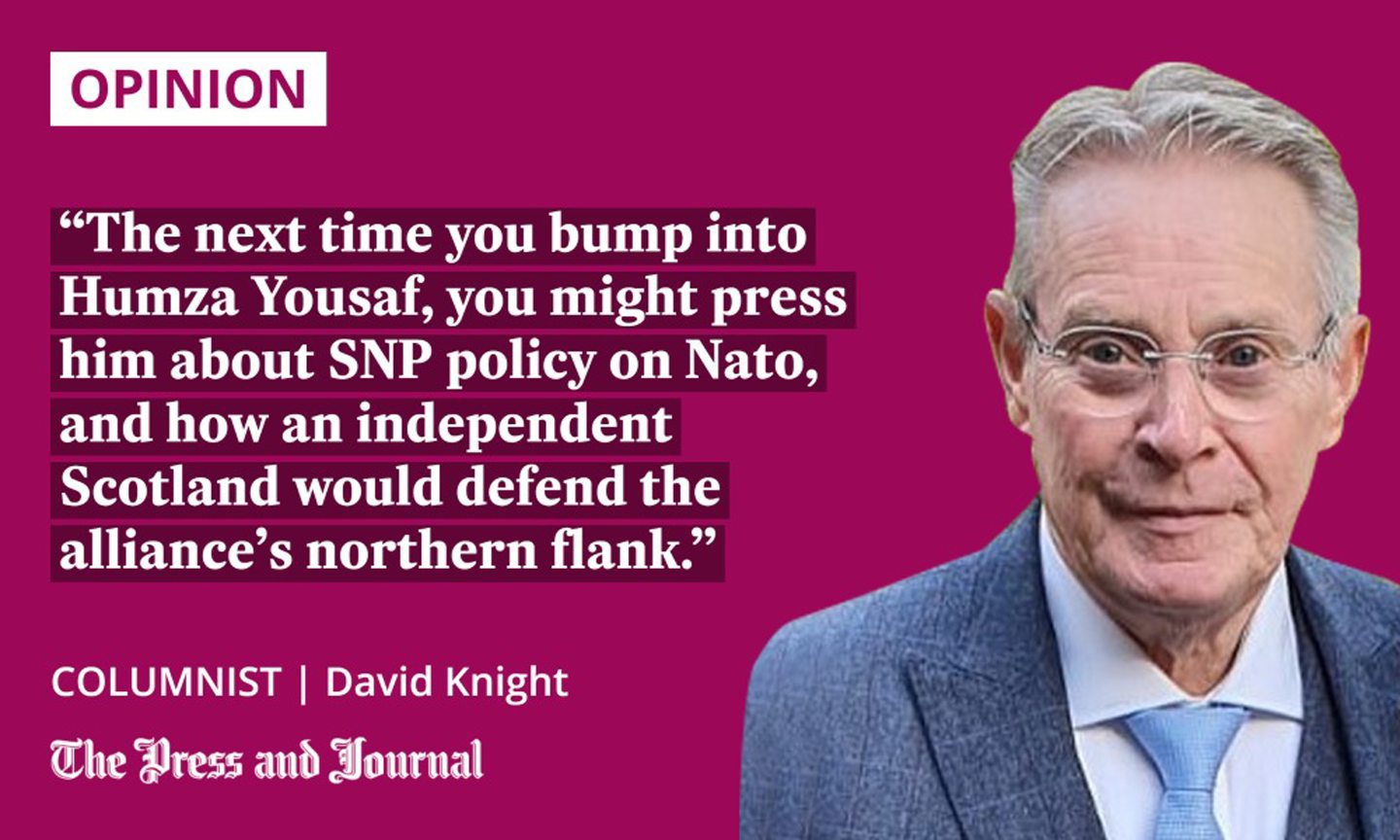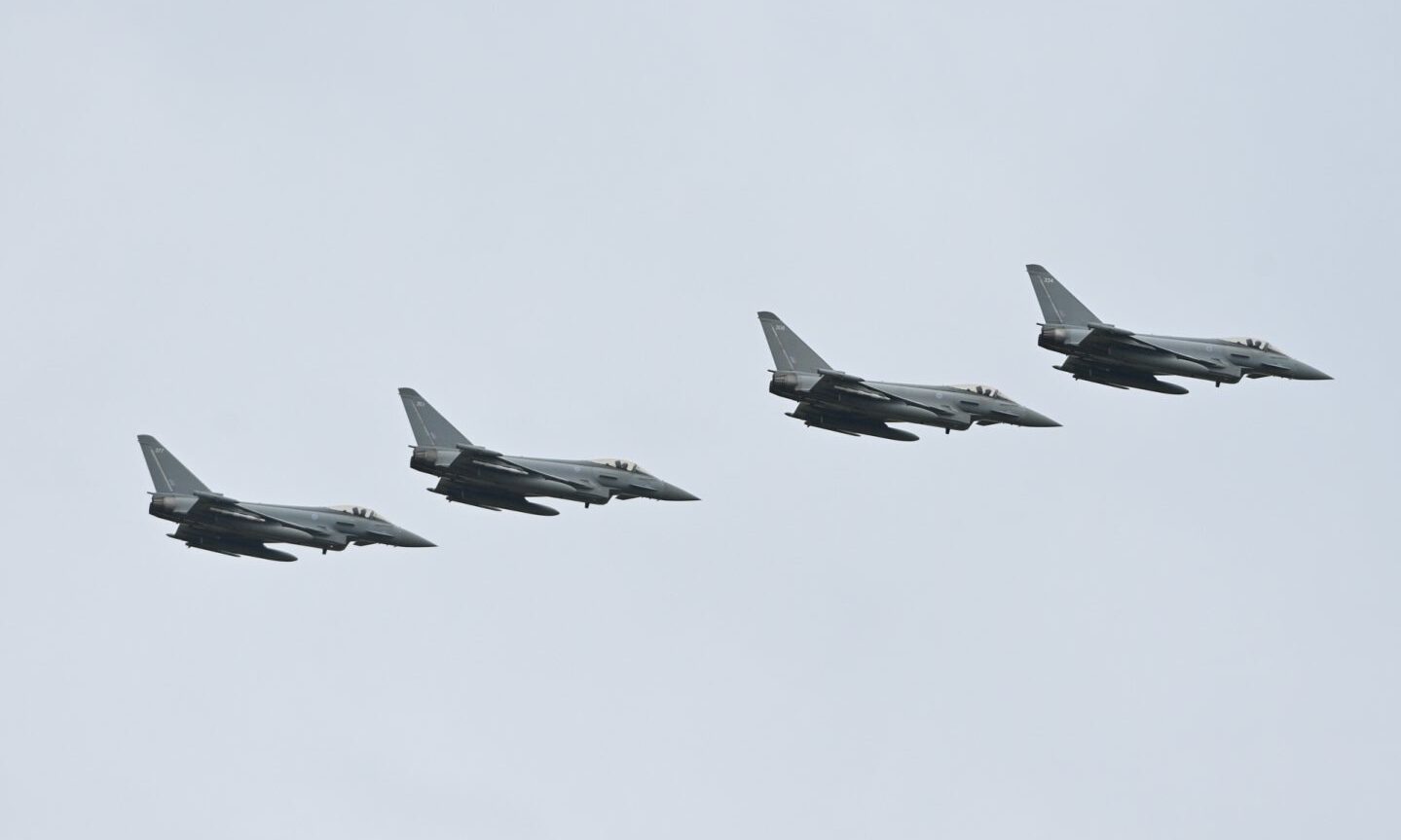I have to confess, I had a sliver of sympathy after anti-oil climate protesters climbed onto Rishi Sunak’s roof.
But only for a few fleeting seconds because, having paused for reflection, the episode reminded me that reaching people at the top of the greasy pole to make a point is nigh on impossible. Especially for ordinary people without their back up.
So, extreme action might be required, but only when justified.
In the case of Greenpeace and most of the rest of these climate “warriors” – or annoying “eco mobs”, depending on your outlook – their methods are questionable. They have worn public patience down faster than the glacial meltdown at Suicide Basin in Alaska.
The sight of them linking arms to stop people going to work or yet another old man staging a wobbly Wimbledon sit-down turns public opinion against them. A major cycling event in Scotland was disrupted the other day.
That’s why, as I watched the Greenpeace stunt unfolding, I longed to hear a distant throb of helicopters heading to Sunak’s North Yorkshire constituency home. To see masked black-clad SAS troopers swooping onto the property from ropes. And then throwing them off the roof.
Not to their deaths, of course. Maybe they could have deployed one of those bouncy blanket things firemen spread out on the ground to catch people.
Just to shake them up a bit; maybe a sprained ankle here and there, or a dent in their daft-looking helmets.

Yes, treat the incident like a terrorist attack. Why not? This was the sitting prime minister’s private home after all.
Instead, we had police standing around for hours agonising over what to do.
I know it’s hard to conjure up much sympathy for a fabulously wealthy man who has practically nothing in common with ordinary people.
The Sunaks’ £2 million manor house is due to have a £400,000 extension. And he was away enjoying himself at the family’s £5 million Santa Monica penthouse in California at the time of the protest, and dallying in Disneyland.
A killer punch hits home when our guard is down
But it’s the principle that mattered here. It posed a question over how easy it might be for people with murderous intent to rig his home with explosives and maybe blow the whole family up.
Despite the farcical, almost laughable security arrangements, there was deadly potential in such lax procedures.
It could have been much worse, of course: intruders might have put up a blue tent and turned his house and garden upside down. Oh, sorry, I forgot, that’s already been done at Nicola Sturgeon’s place.
I heard one “expert commentator” argue that security was likely to be at a lower level when the PM was away. Isn’t that a self-defeating strategy? A golden invitation for terrorists probing weak spots in our defences to come in and make themselves at home.
A killer punch often hits home when any organisation’s guard is down. Just look at those daring RAF fighter pilots from Lossiemouth.
You might have seen their exploits in a stunning video recently, which showed them intercepting Vladimir Putin’s bombers repeatedly – eyeball to eyeball over the Baltic.
What if they decided one day to stop scrambling to see off the Russian threat?
A bit like the Sunak situation: why bother? Nothing is going to happen, it’s just childish play-acting.
But it’s a deadly game being played out, because if Putin’s probing rules the skies over the Baltics, it’s a gateway to northern Britain; Scotland, in other words. Not so fanciful now, is it, after the invasion of Ukraine?
It takes nerve to speak up
The next time you bump into Humza Yousaf, you might press him about SNP policy on Nato, and how an independent Scotland would defend the alliance’s northern flank without missiles and military bases. Of course, you won’t.
Ordinary people don’t get a chance to challenge those at the top of public life. There are too many overpaid flunkeys on the public payroll to block their way.
Rarely, it does occur. It happened to Yousaf himself at his recent one-day independence conference in Dundee.
We all enjoy it when someone penetrates the brick wall surrounding the powerful and takes them down a peg or two
You’ll remember how a woman shouted bravely to highlight a NHS scandal. And Yousaf, quick on his feet to seize the opportunity, rushed into the audience to soothe her.
He turned it into a PR success rather than an embarrassment, but only after telling some of his followers to stop booing her.
It takes nerve to do something like she did; driven by desperation, no doubt.
Whether Yousaf actually achieves anything after his much publicised intervention is an entirely separate matter, of course.
We all enjoy it when someone penetrates the brick wall surrounding the powerful and takes them down a peg or two. But we also have the wisdom to know instinctively when right is on their side. Or when it’s a bunch of idiots overstepping the mark because they lack any judgment over public mood.
David Knight is the long-serving former deputy editor of The Press and Journal

